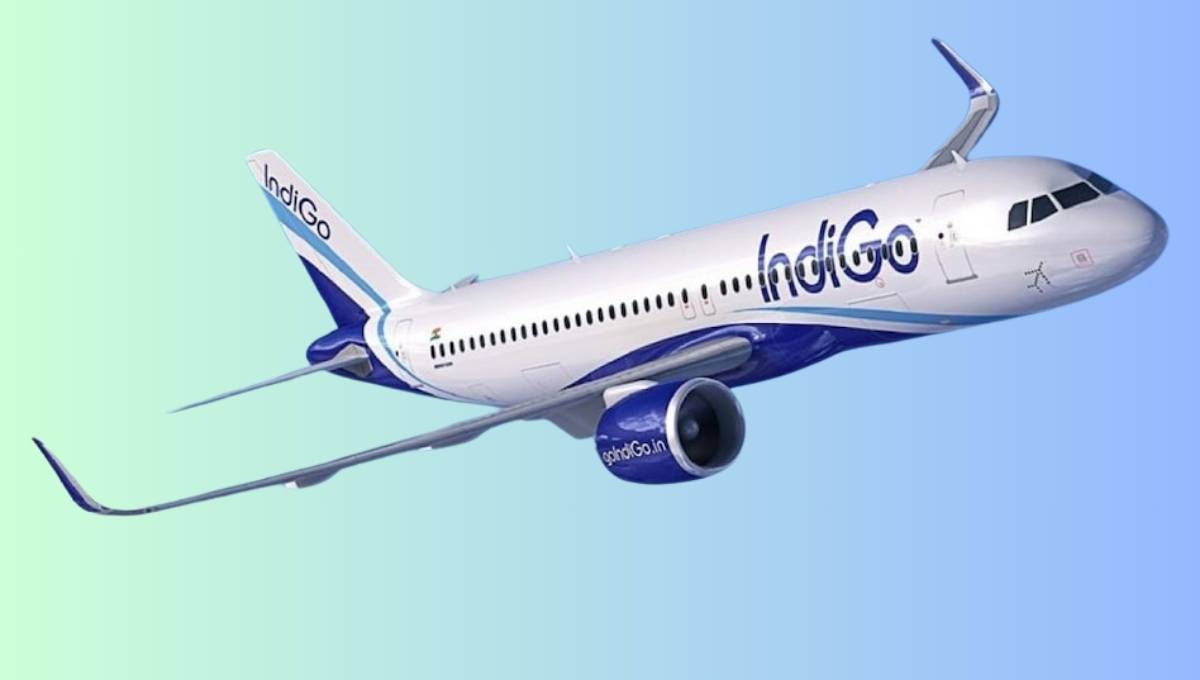IndiGo, India’s largest airline, has removed fuel charges from its tickets, nearly three months after introducing the levy in response to a surge in jet fuel prices. The fuel charge was introduced in early October 2023 and ranged between Rs 300 and Rs 1,000 per sector, depending on the distance. The removal of the fuel charge is attributed to the recent reduction in Aviation Turbine Fuel (ATF) prices.
The airline stated that the fuel charge had been withdrawn due to the recent reduction in ATF prices, and they will continue to adjust fares and components thereof to respond to any change in prices or market conditions. ATF prices are dynamic and account for a significant portion of an airline’s operating expenses.
The removal of the fuel charge will lead to a fall in ticket prices. For example, in October, IndiGo levied a fuel charge of Rs 300 on a sector distance of up to 500 km, Rs 400 on 501-1,000 km, Rs 550 on 1001-1500 km, Rs 650 on 1,501-2,500 km, Rs 800 on 2,501-3,500 km, and Rs 1,000 on 3,500 km and above.
IndiGo remains committed to providing affordable, on-time, courteous, and hassle-free travel for its customers and will continue to adjust fares and components accordingly to respond to any changes in prices or market conditions.
How will the removal of the fuel charge impact IndiGo’s financial performance in the short and long term?
IndiGo’s decision to remove fuel charges from its tickets due to the recent reduction in Aviation Turbine Fuel (ATF) prices is expected to impact the airline’s financial performance in the short and long term. The removal of the fuel charge will lead to a fall in ticket prices, which could result in increased demand for IndiGo’s services.
However, the airline may experience a decline in revenue due to the removal of the fuel charge, which was a significant source of income. The impact of the fuel charge removal on IndiGo’s financial performance will depend on various factors, including the airline’s ability to adjust its fares and components in response to any future changes in ATF prices or market conditions.
IndiGo remains committed to providing affordable, on-time, courteous, and hassle-free travel for its customers and will continue to adjust fares and components accordingly to respond to any changes in prices or market conditions.
How will the Airline Adjust Its Fares and Components
Airlines, including IndiGo, adjust their fares and components in response to future changes in Aviation Turbine Fuel (ATF) prices or market conditions. Some of the strategies that airlines employ to mitigate the financial impact of fuel price fluctuations include:
- Reducing the number of flights on certain routes or adjusting flight frequencies.
- Implementing fuel surcharges, which are additional charges added to the base fare to cover the cost of fuel.
- Fleet simplification, staff reduction, and other cost reduction measures.
- Capacity discipline and optimizing load factors.
- Route planning and efficient aircraft usage.
- Adjusting fare structures and promotional offers based on market demand and competition.
These strategies help airlines maintain profitability and respond to changes in the aviation industry, such as fluctuations in fuel prices and shifts in market demand.
Implications of the Fuel Charge Removal for Other Airlines
The removal of fuel charges by IndiGo, in response to the recent reduction in Aviation Turbine Fuel (ATF) prices, has significant implications for other airlines in the Indian aviation industry. Other airlines may face pressure to re-evaluate their pricing strategies and consider similar moves to remain competitive.
The removal of fuel charges by IndiGo could lead to increased price competition and potentially lower ticket prices across the industry, as airlines seek to attract and retain passengers in the wake of this change.
Additionally, airlines may need to reassess their revenue models and operational strategies to adapt to the evolving market dynamics and the absence of fuel charges.
As ATF prices are dynamic, airlines will likely continue to adjust their fares and components to respond to any changes in prices or market conditions, ensuring ongoing flexibility and responsiveness to fuel price fluctuations.
- https://indianexpress.com/article/business/aviation/indigo-removes-fuel-charge-on-tickets-9094739/
- https://www.news18.com/business/indigo-ticket-prices-to-reduce-as-airline-removes-fuel-charge-8727594.html
- https://www.cnbctv18.com/aviation/flight-ticket-prices-set-to-decline-as-indigo-removes-fuel-surcharge-18715021.htm
- https://www.news9live.com/business/companies/indigo-to-lower-ticket-prices-airline-removes-fuel-charge-on-fares-with-effect-from-january-4-2395399
- https://www.indiatvnews.com/business/news/indigo-removes-fuel-charge-on-tickets-following-reduction-in-atf-prices-latest-updates-2024-01-04-910234
